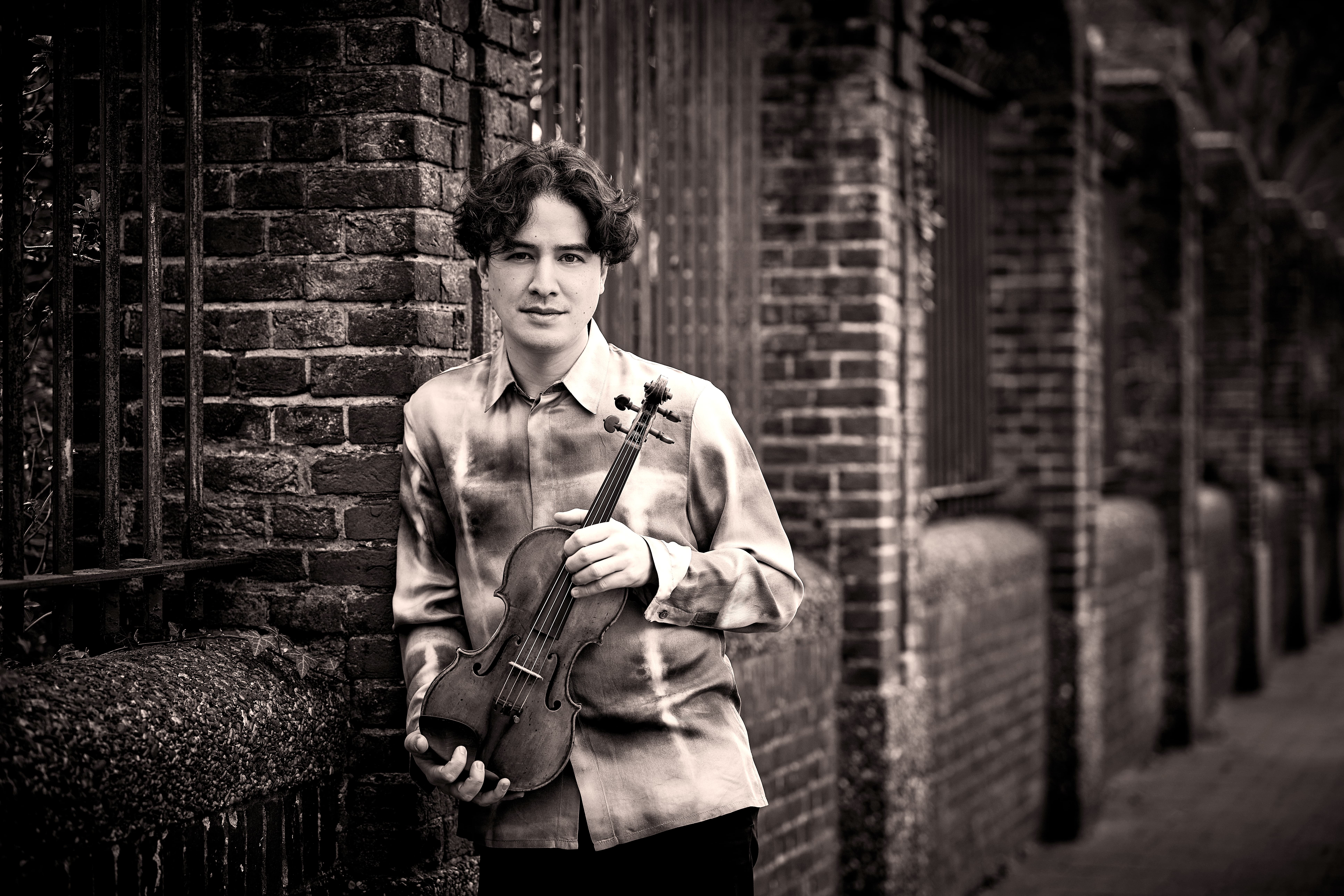
1. You have a long-term relationship with the TSSO, from a very young age. Tell us a few words about this relationship and how you see the TSSO and the Greek orchestras in general comparing to the orchestras around the world you are collaborating with?
Indeed, I've been playing with the TSSO since 2007 if I remember well. The way the orchestra as embraced me makes me feel very welcome in Thessaloniki. It might be one of the very few orchestras where I have an "at home" feeling.
2. Your last collaboration with the TSSO was in spring, when in a time of prohibition, with only online concerts allowed, you participated in the shooting for the new episode of the series of Greek composers’ portraits, dedicated this one to Manolis Kalomiris. You recorded with the orchestra, among others, the ‘Island Pictures’, which is the work that you will present at the concert on October 29. Would you like to tell us a few words about this work, as long as all experience of yours participating in this project?
Kalomiris I had only heard about until this project. I understand now the important role he has in Greek music history. I am very much surprised from the very atmospheric and levitating character K. is able to reach within his slow movements. The use of Greek folk song melodies is of course the main idea in these pieces. K. manages a a colorful approach on a mixture of styles which isn't obvious. I am very happy to be able to present the "Island pictures" for the public of Thessaloniki.
3. In addition to your international concert activities, the teaching has a large part in your life, since you teach, among others, at Robert Schumann University of Music in Düsseldorf and the Mannheim University of Music and Performing Arts, along with regular masterclasses you give in Japan and elsewhere. Are you aware of the level of music education in Greece and what are the main differences, comparing to the corresponding musical education in Germany and Japan, for example?
This question is a little too broad to me. If you ask me in general (almost all over the world) we lack possibilities to allow young musicians to be confronted to even more challenging approach of music. Instead of that we focus on an efficient way of building up musicians. There is unfortunately no efficiency need for the arts. Greece always amazes me by the amount of people who are genuinely interested into music. I know the situation in most music pedagogic institutions in Greece is not easy, but given the circumstances the amount of devoted young talents I have encountered the last years makes me confident for the future of classical music in Greece
+1. For the last year and a half, the artists all over the world had to face, in addition to the daily anxiety for health and the future like the rest of the world, something more in their professions: the loss of the direct contact with the audience, which is essential for the nurturing of the artistic process and creation. Describe this situation and these feelings and closing this interview make a wish for the future
Life's challenges are big and this pandemic has shown how we shouldn't consider things as granted. Maybe we are just starting a new way of living and we just don't know it yet. On my side I have taken this opportunity to bond with my family in a way my lifestyle before Corona wouldn't allow. My actual challenge is to find the balance in a world that just asks to go back in to a pre-corona situation and my ideals. My wish is to find my own way in this fast changing world in order to continue to be to be example for the younger generation.
Questions: Nikos Kyriakou
Photo © Maurice van Lammerts van Bueren